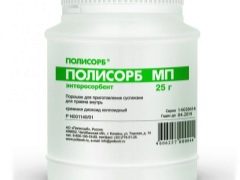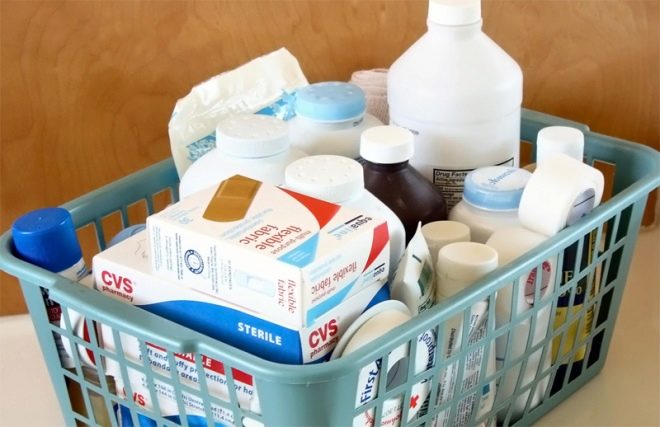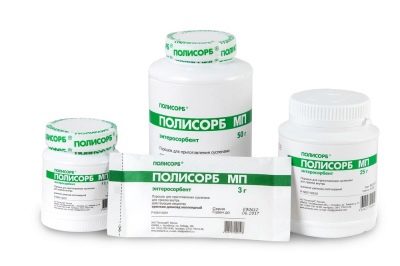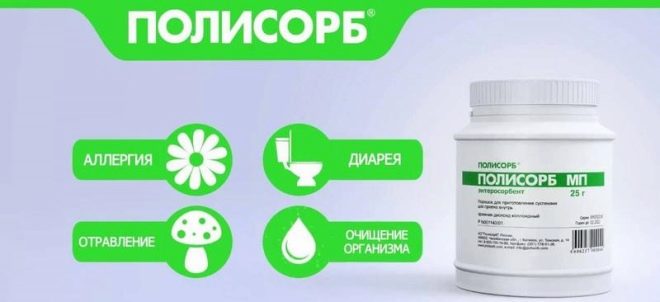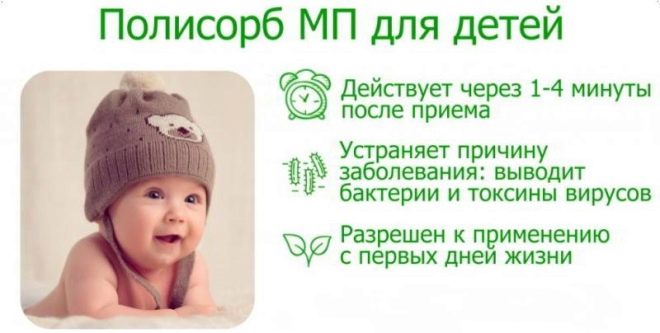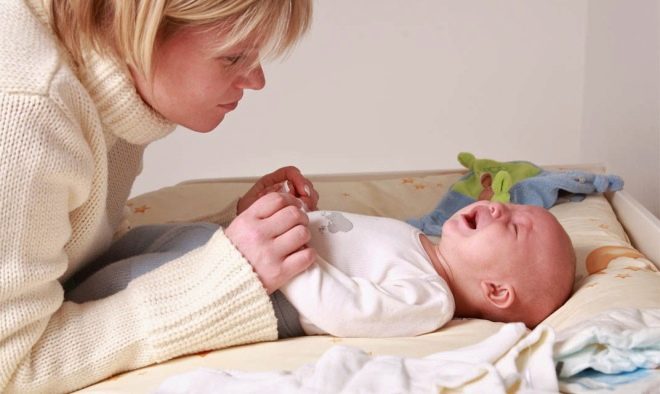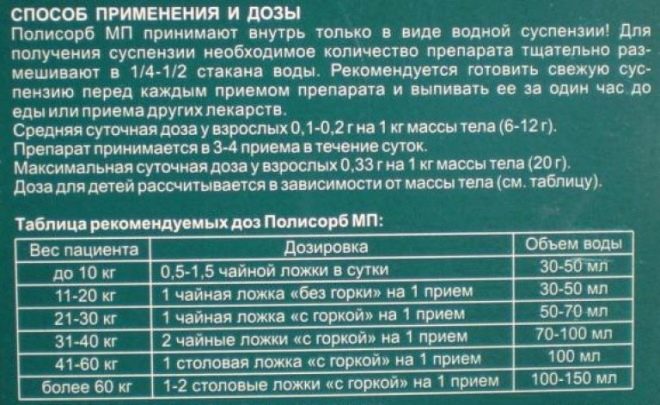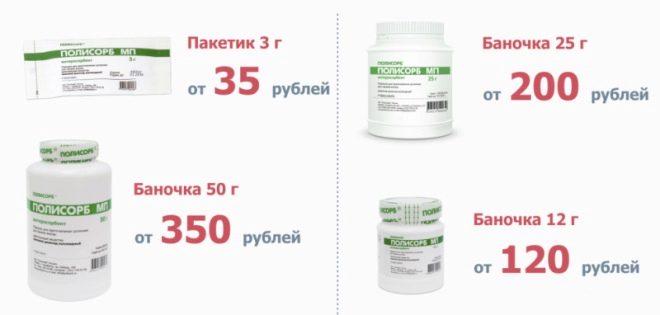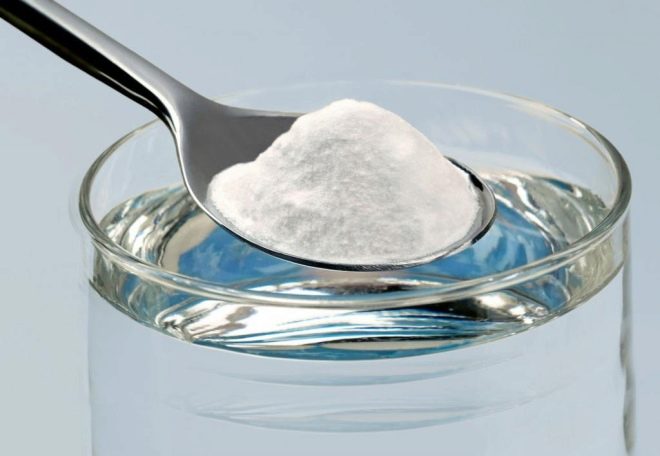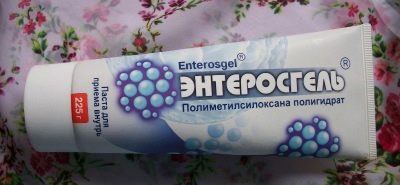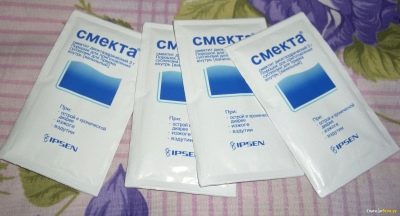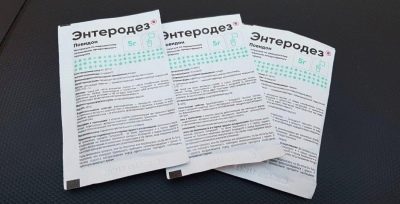Polysorb for newborns and infants: instructions for use
"Polysorb" is one of the very popular sorbents, which is often prescribed for adults to remove from the body a wide variety of toxic substances, toxins, allergens and other harmful compounds, with which, judging by numerous reviews, it copes very well. He is no less popular in the treatment of children, including even infants.
Officially, the drug is called "Polysorb MP", but in conversations doctors and parents often omit these letters, so you should understand that "Polysorb MP" and "Polysorb" are the same medication. It has a very wide scope of use - from digestive disorders and abnormalities of internal organs to colds and poisonings. That is why doctors advise to include such a drug in the first-aid kit of all young parents.
Release form and composition
The only form of "Polysorb" is the powder, which is mixed with a liquid to form a suspension, taken orally. Such a powder has a white color (sometimes with a blue tint) and does not have any smell. It is sold either in portion bags of 3 grams, or in plastic jars containing from 15 to 50 grams of medicine.
Its only component is colloidal silicon dioxide. The dose of this compound corresponds to the amount of powder in the purchased package, as there are no other substances in the bag or jar. In the form of tablets, pastes, capsules or other forms of "Polysorb MP" is not available.
Operating principle
The basis of the powder is an inorganic compound with high sorption properties. It acts non-specifically, that is, it binds a wide variety of substances, which both entered the body from the outside, and were formed inside the body. At the same time, silicon dioxide itself does not undergo any changes in the body and is unable to be absorbed in the intestine, but goes along with feces, taking with itself harmful substances.
Polysorb can adsorb:
- pathogenic microbes that provoke an intestinal infection;
- an excess of bilirubin, creatinine, cholesterol and other compounds;
- medications, including overdose;
- food allergens;
- viruses and fungi that cause diarrhea and other signs of intestinal infection;
- toxins produced by bacteria that have entered the digestive tract;
- ethyl alcohol, heavy metals and other toxic substances;
- compounds that appear in the body due to intoxication.
Do they prescribe newborns and babies?
There are no age restrictions for the use of Polisorb in children. This sorbent is discharged even to babies who were just born, as well as to babies up to one year old. The drug is not prohibited during breastfeeding, because it does not affect the baby, whom the mother is breastfeeding.
However, the use of such a powder at an early age requires compliance with certain conditions:
- the drug can be given only after the examination of the doctor, as there are some contraindications for him that are difficult for parents to assess without a specialist;
- in infants, the remedy is used sporadically in order not to affect the absorption of beneficial nutrients and not to impair the composition of the microflora.
Indications
"Polysorb" is in demand in the treatment of children younger than a year in such cases:
- if the child has any intoxication, signs of which are vomiting, fever, diarrhea, and other symptoms;
- if the baby was diagnosed with dysbacteriosis;
- if the baby got infected with viruses or pathogenic bacteria (not only with an intestinal infection, but also with influenza and other diseases);
- if the level of bilirubin in the blood of a newborn baby is greatly increased or jaundice does not pass for a long time;
- if the baby has been poisoned by any poisonous substance, for example, medicine in a randomly exceeded dose or ethyl alcohol;
- if any allergic reaction has been diagnosed, as well as with diathesis and an increased risk of allergies;
- if the baby has a kidney disease in which the function of this organ is severely impaired.
Contraindications
"Polysorb" should not be given to patients with hypersensitivity to this drug, as well as with serious diseases of the gastrointestinal tract (bleeding, atony and others), therefore, we note again that before the treatment of infants doctor inspection is required.
Side effects
Some babies have allergy symptoms after using the powder. Occasionally, Polysorb may also cause constipation in a child. In this case, the medication should be immediately canceled and, after consulting a doctor, replace with an analog to which the body of the crumbs will react normally.
Instructions for use
Having opened the Polysorb package, you need to carefully collect the required amount of powder (the mass is amorphous and easily rises into the air), and then diluted with plain water. If the medication is given to a newborn, it is acceptable to dilute it with breast milk or its substitute. For babies who have already tried complementary foods, you can combine the powder with compote or juice so that the little patient can drink the medicine more readily.
The time of taking the drug should be coordinated with the diet of the karapuz. Give Polysorb baby should be half an hour later after feeding or one hour before. If such a sorbent is prescribed for atopic dermatitis and other manifestations of food allergies, it is given to babies during meals.
Polysorb is usually given three times a day, and in order to calculate a single dosage, need to know the weight of the child. If the baby weighs less than ten kilograms, then at one time gain 0.5 teaspoon of powder. For karapuzov weighing more than 10 kg a full spoon, collected without a "hill", will be a single portion of "Polysorb". From 30 to 50 ml of liquid is used to dilute a single dose of the drug - this volume is recommended by the manufacturer for children who weigh less than 20 kg. This is noted in the table in the instructions.
The duration of Polysorb treatment for each child is determined individually, as it is influenced by the reason for using the powder and the reaction to the treatment of the child’s body. If the medication was prescribed for digestive disorders or intoxication, then it is often given to the baby only a few days. In case of serious pathologies (kidney diseases, infections, allergies) a doctor may prescribe "Polysorb" with longer courses, but usually they do not exceed 2 weeks, so as not to provoke negative reactions.
Overdose
Polysorb is considered to be harmless, and there have not yet been any cases of powder overdose. Theoretically, if a child accidentally gets too much of this drug, it can lead to an allergic reaction or constipation. In this situation, you need to contact your doctor.
Interaction with other drugs
So that Polysorb does not impair the absorption and therapeutic effect of other drugs, it, like other sorbents, is not recommended to be used simultaneously with any drugs. There should be a break of at least one hour between taking the powder and other drugs.
Terms of sale and storage
The purchase of “Polysorb MP” in a pharmacy does not cause any difficulties, since this sorbent is referred to over-the-counter drugs. But to buy it for infants without a doctor's prescription is not worth it.The price of the powder depends on its quantity in the package. For example, for a jar in which there is 50 grams of funds, you need to pay about 350 rubles, and one sachet with 3 grams of medicine in different pharmacies costs from 40 to 80 rubles.
You can store the medicine at home at room temperature, and the bank must be tightly closed. The shelf life of the undiluted drug is 5 years. After dilution with liquid, the suspension can be stored for up to 48 hours, but for children it is best to dissolve a fresh batch for each subsequent administration.
Reviews
On the use of "Polysorb" in infants you can see mostly positive reviews. They confirm the effectiveness of such a sorbent for diarrhea, dermatitis, colic, jaundice, dysbacteriosis and many other problems.
The disadvantages of the drug mainly include its not very pleasant taste, because of which it is not easy to give the drug to the infant.
Analogs
If necessary, you can use another enterosorbent for the “Polysorb” baby. other similar means.
- «Enterosgel». Such white pasta is sold in bags and tubes. It works due to the porous silicone-based and can be appointed from birth. This paste is tasteless, but there is a sweet option, but this "Enterosgel" is not used in children younger than a year.
- «Smecta». This popular smectite-based sorbent is safe for newborns, has a natural origin and is available in portion sachets. For the child can be purchased as a powder, and already ready suspension.
- «Enterodez». This medicine is also available in powder, packaged in sachets. Its active ingredient is povidone. This substance actively absorbs various toxic compounds, therefore it is used in the same cases as Polysorb.
To learn how to use the drug "Polysorb", see the next video.
